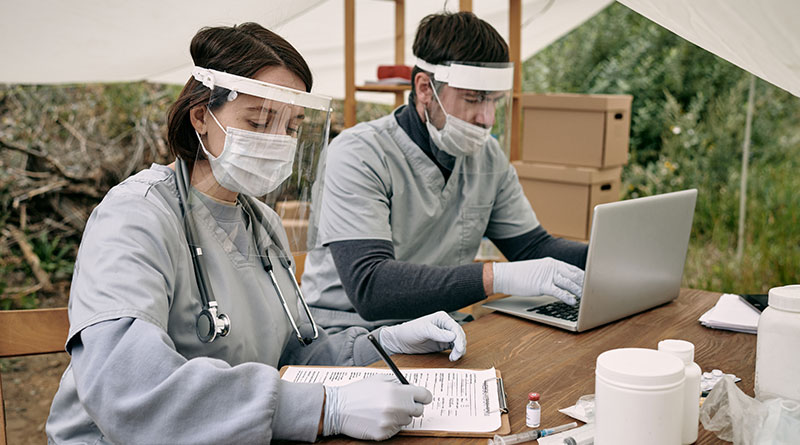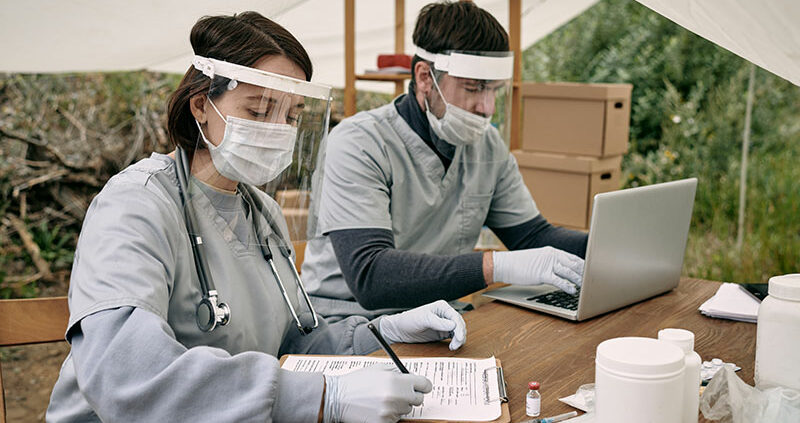Mobile Hospitals: How They Improve Medical Services

Mobile hospitals are not new. In fact, they’ve been used both for temporary and permanent functions in the past decades. For temporary functions, mobile hospitals are utilized during medical drives, campaigns, and other medical events. Meanwhile, for permanent functions, mobile hospitals are used in rural areas and military stations. Today, the presence and use of mobile hospitals are even more prevalent.

Recently, the demand for hospital services has significantly increased. This results in the congestion of hospitals in cities and districts. In rural areas where hospitals aren’t available, mobile field hospitals have become a great addition. There are many ways medical services can drastically improve through the presence of mobile hospitals, forming the reason behind their high demand.
In this article, you’ll learn how the presence of mobile hospitals can improve medical services.
They Give Patients More Access To Medical Aid And Physicians
Mobile hospitals are the solution to the issues arising out of rural areas with no hospital services available and the need to travel far to receive medical services. Without mobile hospitals, it will be expensive and time-consuming for patients to travel far just to have medical care. If the patient has a physical disability that renders them immobile, the need to travel becomes an even greater inconvenience.
With mobile hospitals, patients will now have more access to medical aid and physicians. This isn’t to say that the services offered by mobile hospitals are as extensive as those in the bigger, permanent hospitals. But at least patients can have immediate medical care before a possible recommended transfer to the bigger hospitals. This way, their condition won’t worsen due to the delay in medical attention.
It can make a big difference in the prognosis and recovery rate of patients when they can have prompt medical care. They no longer have to be burdened by the fact that medical aid and services are inaccessible right where they are.
They Take On A Patient-Centric Approach
A patient-centric approach is achieved when the healthcare system of a particular local area can meet the medical needs of its patients. They no longer have to be affected by the lack of medical services or the absence of a general physician whom they can consult for a health concern.
Mobile clinics can now switch the focus to making basic healthcare services available to those who need them. This results in more patients being cured, and the curbing of possible spread of diseases in a local area.
With mobile clinics, bigger hospitals could be decongested. This means better patient care can also be provided when the various medical concerns can easily be addressed by the mobile clinic. Mobile clinics are equipped with facilities that can help save lives, especially during medical emergencies.
They Improve Medication Adherence
Medication adherence refers to the follow-up and proper use of medication once the patient leaves the hospital. Without mobile hospitals, patients will need to travel to the nearest hospital for their medical care.
In a regular consultation, the doctor sees the patient and prescribes medication and home care. Once the patient leaves the hospital, there might be little to no follow-up as to whether the patient has successfully adhered to the doctor’s orders. This results in health issues staying unaddressed and the patient’s condition poorly managed.
With mobile hospitals, medication adherence may be improved. The reason for this is that patients now have the opportunity to access medical professionals easier for any follow-up and other concerns. They don’t have to be hindered by the lack of medical services or the need to travel far just for a follow-up.
They May Increase Treatment Accuracy
When more patients have access to healthcare provided by mobile hospitals, a higher rate of treatment accuracy can be achieved. This means that when an individual experiences any medical symptom, they don’t have to self-medicate and run the risk of possibly worsening their condition or affecting their chances of getting cured.
Treatment accuracy is achieved when, even upon the first onset of mild symptoms, medical care is given to the affected patient. There’s less chance for wrong treatment or misuse of medication if the patient went to the hospital. Thus, possible negative effects could be avoided.
Conclusion
Time and technology have changed the way the healthcare system works. In the past, going to a hospital was enough. It’s even almost impossible to imagine a situation where hospitals will have to turn down patients as they’ve already reached full capacity.
Today, times have changed and more medical solutions will have to be offered. One of these medical solutions is a mobile hospital. Its advantages, as discussed above, should be convincing enough that mobile hospitals are very much a necessity for many localities today. Especially during this pandemic, mobile hospitals are considered crucial as the numbers of patients increase every day.





Really helpful article! Medical services are the backbone of healthcare, and it’s amazing to see the advancements in this field.